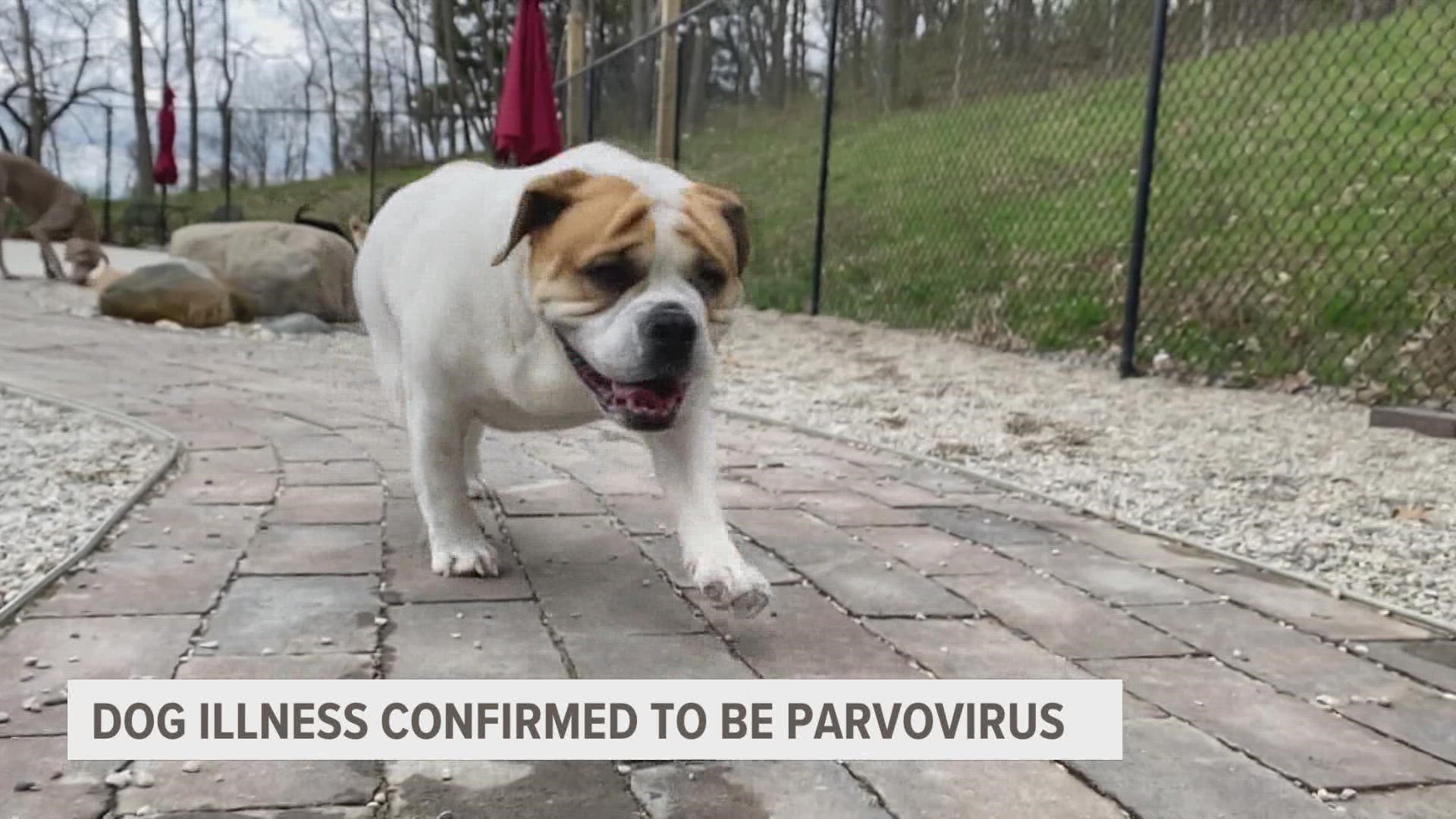ADA, Mich. — An illness infecting dogs in a Northern Michigan county is no longer a mystery. The Michigan Department of Agriculture and Rural Development confirmed Wednesday that it is Canine Parvovirus. The announcement comes as the number of dogs suspected of dying doubled, going from 30 to 60 in just a matter of days.
The virus is extremely contagious, and can be deadly, but experts say it is not new. Even as answers are finally coming to light, some dog owners are still unsure.
"I think the scary part of this whole situation is the unknown," said Abby Bannar, who lives in Ada with her Pomsky named Bender.
Bannar said she takes Bender everywhere, and he loves going to the dog park. She said she's heard of parvovirus, but was shocked to hear of its impact in Northern Michigan.
"It's very jarring, and so sad to hear that as a dog owner," she said. "Bender means so much to me, and is a big part of my life, so to hear that so many people have gone through losing their best friend is just so sad to hear."
The Michigan Department of Agriculture and Rural Development (MDARD) said the dogs that died of the virus so far did not have a history of complete vaccination. Though, some of the dogs still tested negative for parvovirus, raising concerns.
"This situation is complex because although the dogs displayed clinical signs suggestive of parvovirus, they consistently test negative by point-of-care tests performed in clinics and shelters," said MSU VDL director Kim Dodd, DVM, in a press release.
"Screening tests for parvo are done to help guide immediate isolation, disinfection, and treatment protocols. While those tests are valuable in the clinical setting, they are not as sensitive as the diagnostic tests we can perform here in the laboratory. We continue to further characterize the virus in hopes of better understanding why those animals were testing negative on screening tests."
"It's not something that's unknown here in the Kent County/Grand Rapids area, but I think the difference is this strain is coming up with a lot of negative testing, so it's a little bit different than what we're used to," said Angela Hollinshead, the Public Health Division Director for the Kent County Animal Shelter.
"We always take the precautions to make sure our dogs are safe, so to know that there is this unknown that you can't really prepare for or look out for is pretty scary," Bannar said.
Scary because the Canine Parvovirus is highly contagious for dogs, and very resilient.
"Humans can't catch it, but it is very contagious to other dogs and it's spread through fecal matter," Hollinshead explained. "It can live in the soil, and live through several different temperature changes for quite some time."
Experts say to make sure to clean up after your pet, and not allow them to come in contact with other pets' waste.
"Because of how highly contagious it is, they don't necessarily have to ingest a large amount of fecal matter," Hollinshead said, "but even ingesting any of the particles is really what kicks it off."
You can even carry it on your shoes without realizing.
"So, if you step in contaminated fecal matter and you walk through your yard or your house, you can spread it that way," she added.
The state said the illness is most deadly for puppies and for dogs that have not been vaccinated. So, if your dog is caught up on it's vaccines, they said the recent cases should not cause owners to drastically change how they care for their pets or where they take them. Still, some owners are taking precautions.
"Bender and I are definitely not going to be going to a dog park anytime soon," Bannar said. "Probably even after they know how to treat it and how to prevent it, I'll stay away at least for a little while just to make sure he's okay."
MDARD said that Canine Parvovirus is not contagious to people or other species of domestic animals. The disease is common in Michigan and is not required to be reported to the state veterinarian's office.
"Canine parvovirus is a severe and highly contagious disease in dogs and veterinary professionals have extensive experience with this virus," said State Veterinarian Nora Wineland, DVM, in a press release Wednesday.
"We have a highly effective vaccine available to help protect dogs from the virus. Dogs that are not fully vaccinated against this virus are the most at risk. Dog owners across Michigan must work closely with their veterinarians to ensure their dogs are appropriately vaccinated and given timely boosters to keep their pets safe and healthy. Protecting Michigan's dogs is a team effort."
►Make it easy to keep up to date with more stories like this. Download the 13 ON YOUR SIDE app now.
Have a news tip? Email news@13onyourside.com, visit our Facebook page or Twitter. Subscribe to our YouTube channel.

